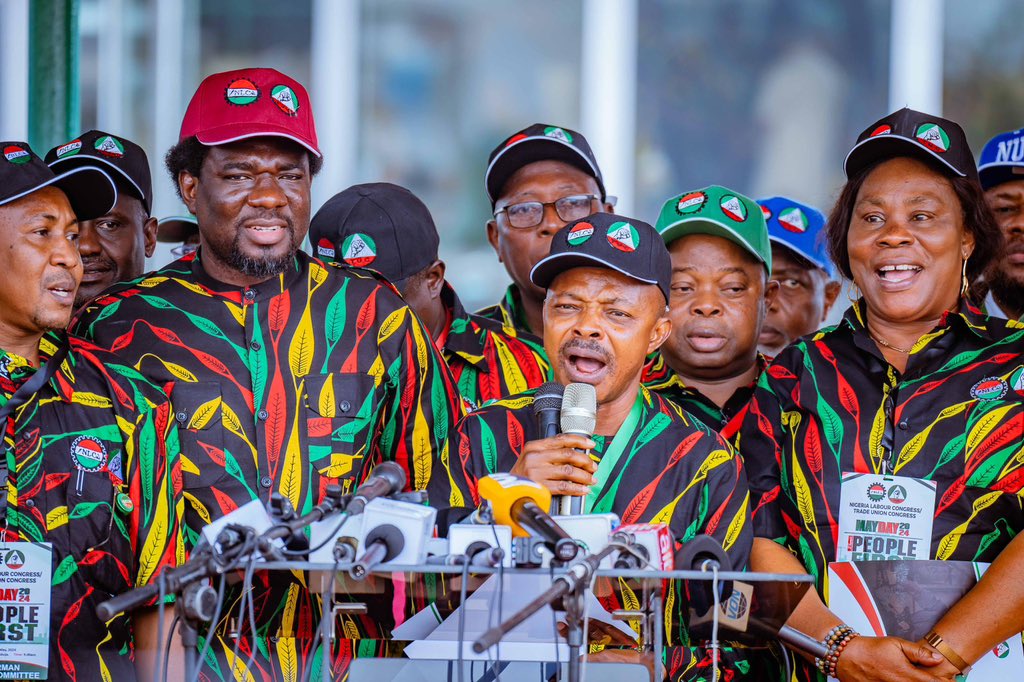BUSINESS

NLC DECLARES NATIONWIDE PROTEST AGAINST 50% TELECOM TARIFF HIKE, THREATENS SERVICE BOYCOTT
The Nigeria Labour Congress (NLC) has announced plans to embark on a nationwide protest against the proposed 50 per cent hike in telecom tariffs recently approved by the Nigerian Communications Commission (NCC). The decision was reached at the National Administrative Council (NAC) meeting of the NLC on January 29, and the protest is scheduled for February 4, 2025.
In a communiqué signed by NLC National President, Joe Ajaero, the union strongly condemned the tariff hike, describing it as "insensitive, unjustifiable, and a direct assault on Nigerian workers and the general populace already burdened by worsening economic hardship." Ajaero emphasized that failure to reverse the decision might escalate into a nationwide boycott of telecommunication services.
The protest has also gained the backing of several Civil Society Organisations (CSOs), including the Civil Society Legislative and Advocacy Centre, the National Civil Society Council of Nigeria, and the Take It Back Movement. These groups have pledged their support, condemning the tariff hike and vowing to participate in the planned demonstrations.
The Federal Government had approved a 50 per cent increase, despite telecom operators initially requesting a 100 per cent hike. Rejecting the move, the NLC warned of its severe impact on Nigerians already struggling with economic difficulties such as high inflation, surging food prices, and the recent fuel and electricity tariff hikes.
Ajaero reiterated that the February 4 rally serves as a warning against policies that further impoverish citizens. “The rally will serve as a warning on the dangers of imposing such an unfair increase on a struggling population earning a minimum wage of only N70,000; a population that has suffered outrageous hikes in the price of petrol, high cost of food, hike in electricity tariff, and general rising inflation,” he stated.
To ensure mass participation, Ajaero directed all NLC affiliates and state councils to commence full mobilization ahead of the protest. He also called on the informal sector and the general public to stand in solidarity against what he termed an unjust economic policy.
Furthermore, the NLC has demanded an immediate suspension of the 50 per cent tariff hike and urged the Federal Government, the NCC, and the National Assembly to engage in dialogue with relevant stakeholders. Failure to heed this demand, Ajaero warned, could lead to more severe actions, including a nationwide boycott of telecom services and a potential withdrawal of labour across various sectors.
“The Nigeria Labour Congress remains committed to protecting the interests of Nigerian workers and citizens against exploitative economic policies. We will not relent in our struggle against policies that undermine the welfare and dignity of our people,” Ajaero declared.
As the February 4 protest looms, pressure continues to mount on the Federal Government to reconsider the telecom tariff hike amid growing discontent over economic hardships. The NLC insists that prioritizing corporate profits over citizens’ well-being will not be tolerated, urging Nigerians to unite and take action against further economic oppression.
"This represents a significant development in our ongoing coverage of current events."— Editorial Board









